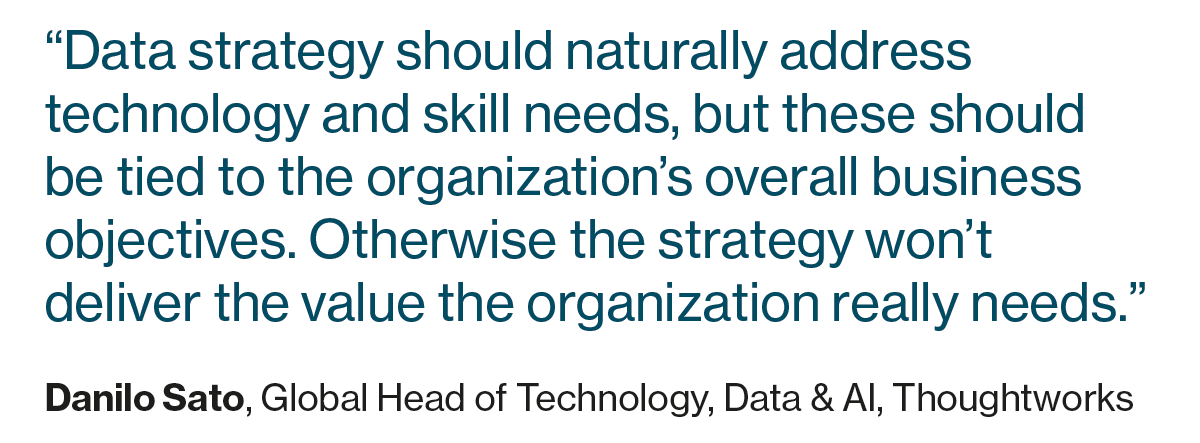This report seeks to understand organizations’ objectives for their data modernization projects and how they are implementing such initiatives. To do so, it surveyed senior data and technology executives across industries. The research finds that many have made substantial progress and investment in data modernization. Alignment on data strategy and the goals of modernization appear to be far from complete in many organizations, however, leaving a disconnect between data and technology teams and the rest of the business. Data and technology executives and their teams can still do more to understand their colleagues’ data needs and actively seek their input on how to meet them.
Following are the study’s key findings:
AI isn’t the only reason companies are modernizing the data estate. Better decision-making is the primary aim of data modernization, with nearly half (46%) of executives citing this among their three top drivers. Support for AI models (40%) and for decarbonization (38%) are also major drivers of modernization, as are improving regulatory compliance (33%) and boosting operational efficiency (32%).
Data strategy is too often siloed from business strategy. Nearly all surveyed organizations recognize the importance of taking a strategic approach to data. Only 22% say they lack a fully developed data strategy. When asked if their data strategy is completely aligned with key business objectives, however, only 39% agree. Data teams can also do more to bring other business units and functions into strategy discussions: 42% of respondents say their data strategy was developed exclusively by the data or technology team.

Data strategy paves the road to modernization. It is probably no coincidence that most organizations (71%) that have embarked on data modernization in the past two years have had a data strategy in place for longer than that. Modernization goals require buy-in from the business, and implementation decisions need strategic guidance, lest they lead to added complexity or duplication.
Top data pain points are data quality and timeliness. Executives point to substandard data (cited by 41%) and untimely delivery (33%) as the facets of their data operations most in need of improvement. Incomplete or inaccurate data leads enterprise users to question data trustworthiness. This helps explain why the most common modernization measure taken by our respondents’ organizations in the past two years has been to review and upgrade data governance (cited by 45%).
Cross-functional teams and DataOps are key levers to improve data quality. Modern data engineering practices are taking root in many businesses. Nearly half of organizations (48%) are empowering cross-functional data teams to enforce data quality standards, and 47% are prioritizing implementing DataOps (cited by 47%). These sorts of practices, which echo the agile methodologies and product thinking that have become standard in software engineering, are only starting to make their way into the data realm.
Compliance and security considerations often hinder modernization. Compliance and security concerns are major impediments to modernization, each cited by 44% of the respondents. Regulatory compliance is mentioned particularly frequently by those working in energy, public sector, transport, and financial services organizations. High costs are another oft-cited hurdle (40%), especially among the survey’s smaller organizations.
This content was produced by Insights, the custom content arm of MIT Technology Review. It was not written by MIT Technology Review’s editorial staff.
















